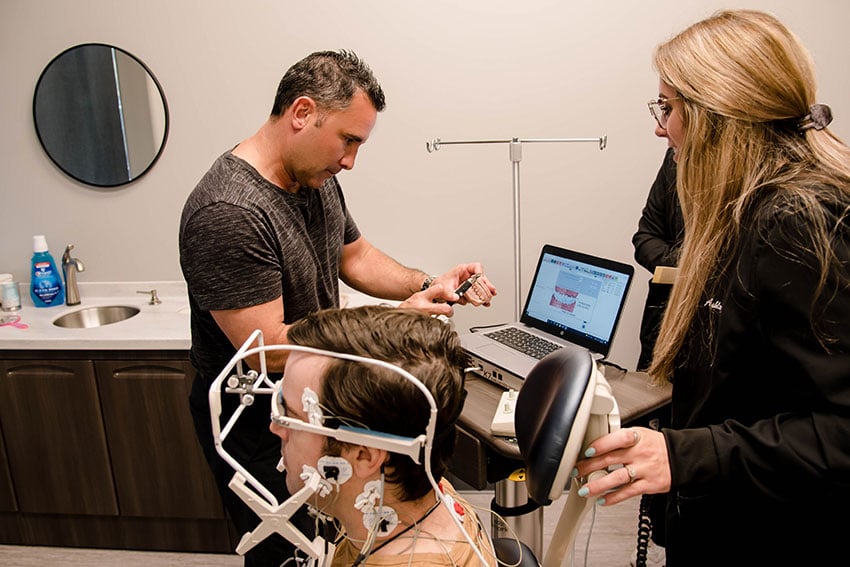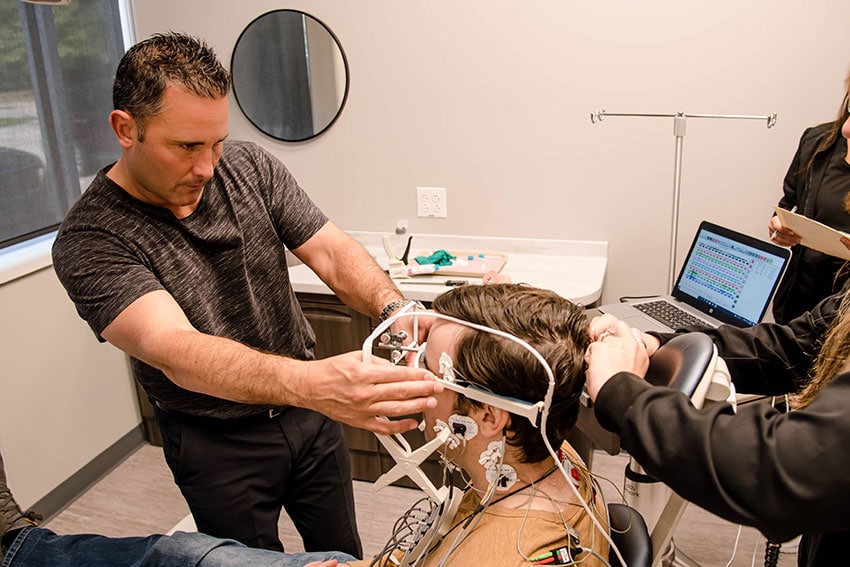What Is TMJ?
The temporomandibular joint is one of the most important joints in the body. TMJ refers to the joint itself, while TMD—temporomandibular joint disorder—describes the condition that develops when one or both joints are not working properly. When people say they “have TMJ,” they are usually describing TMD, which requires thorough evaluation and diagnosis to understand.
In simple terms, TMD occurs when there is an irregularity in how the jaw moves or rests. This may result from a displaced cushioning disc, misaligned bite, or inefficient joint motion. In some cases the condition remains mild, but for others it becomes more complex and disruptive.
The temporomandibular joints are located at a critical crossroads of the body, surrounded by nerves, muscles, blood vessels, and the airway. Because of this, even minor dysfunction can create widespread effects. That is why accurate diagnosis is essential to determine whether TMJ is the true cause of ongoing pain or discomfort.
TMJ Symptoms
TMJ disorder can be difficult to identify because its effects are not limited to the jaw. Instead of one clear sign, patients may experience a variety of issues that seem unrelated—pain in the head, face, ears, or neck, as well as bite changes or jaw stiffness. These symptoms often occur one at a time and are easily mistaken for other health conditions, which makes TMJ difficult to recognize without a careful exam.
Since the jaw joints are so closely connected to major nerves and muscles, dysfunction in this area can affect the entire body. This is why TMJ symptoms are so diverse and why proper diagnosis is the key to finding lasting relief.
Neuromuscular Dentistry
Neuromuscular dentistry focuses on the balance between the jaw’s muscles, bones, cartilage, and nerves. The principle is simple: when the jaw is in a relaxed, natural position and moves freely, it avoids placing stress on surrounding structures.
Treatment typically begins by identifying your healthiest jaw position and then supporting it with a custom bite splint or, if necessary, reconstructive dentistry. Neuromuscular dentistry can be highly effective on its own, and it may also be combined with other therapies such as physical therapy, laser therapy, medication, or surgery when appropriate.
The TMJ Precision Approach™
At Michigan Center for TMJ & Sleep Wellness, we go beyond standard care with the TMJ Precision Approach™—a comprehensive system developed by Dr. Jeffrey Haddad to carefully diagnose and treat jaw disorders, chronic pain, and bite misalignment. This approach combines advanced neuromuscular dentistry, precision diagnostics, and proven therapies like oral appliances and laser treatment to address the root of your condition instead of masking symptoms.
Many patients come to us after years of being told that “nothing is wrong” or that medication is the only solution. The TMJ Precision Approach™ is designed to change that experience. By focusing on your unique jaw function, bite, and overall health, we create a treatment plan that restores harmony to your jaw and provides lasting relief.
Schedule Your TMJ Consultation in Detroit
If you live in the Detroit area and want to understand how TMJ may be causing your symptoms—and how treatment can bring relief—please call Michigan Center for TMJ & Sleep Wellness at (248) 480-0085 to request an appointment.






